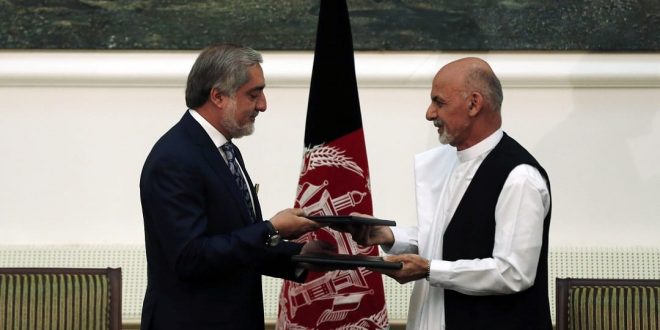As if the continuing political turmoil, the fragile peace process and escalating Taliban violence were not enough, Afghans have to contend with the surging COVID-19 positive cases now – something leading to confusion worse confounded. Despite the fact that the new string of coronavirus has eclipsed all other issues, the presidential enclave in the Afghan capital is bristling with guns while interestingly, not due to a threat from the Taliban or Islamic State (IS). But it has become ground zero in a war of nerves between two politicians – de jure President Ashraf Ghani and self-proclaimed president Abdullah Abdullah. This is while the former vice president of Ghani, Abdul Rashid Dostum, has sided with Abdullah this time around and has illegally returned to his office, guarded by his gunmen in the same enclave. As the standoff drags into its second week, Afghans fear that a slight spark could ignite a violent conflagration between the rival camps, plunging the country into chaos, as well as dooming planned negotiations between the government and the Taliban. President Ghani, who has received acknowledgement and recognition of the international community since the representatives attended his inauguration and ignored Abdullah’s, is moving back and forth on the agreed-upon release of Taliban prisoners, risking to wreck the US-Taliban peace pact signed last month. Ghani had earlier rejected the condition of releasing 5,000 prisoners under the deal as he remarked it was a sovereign state’s decision. But, later on, the Afghan government conceded to phased release as a goodwill gesture, viz, to set free 1,500 inmates before the intra-Afghan talks commence with the remaining 3,500 to be released in batches of 500 every two weeks during the expected peace parleys – with the proviso that prisoners released provide a written pledge not to return to fighting. Nonetheless, the government has surprisingly once again announced delaying the plan to release 1,500 Taliban prisoners, citing a review of the prisoners’ list and no guarantee from the rebel group that the released won’t return to fighting as reasons. With the intra-Afghan talks already sidetracked by the dispute over the mass release of Taliban release, the grudge match between the leaders is potentially dividing security forces who struggle to put national loyalties over ethnic and personal ones – something that bodes ill for the national unity of the country. Just like the last time when the two rivals were forced into a tense power-sharing arrangement under US mediation; this time, something similar is inevitable. The only thing staving off such developments is the fact that leaders are attempting to get the best out of the situation. Although the idea of power-sharing is anathema to Afghan masses given the experience of the last administration, there is no other way to resolve the presidential crisis but through a rapprochement. If the underway patching-up efforts don’t yield positive results and something untoward happens, the only party it would favor is the Taliban as we would witness yet another civil war and anarchism at the hands of these egocentric and power-thirsty leaders.

 Afghanistan Times
Afghanistan Times



